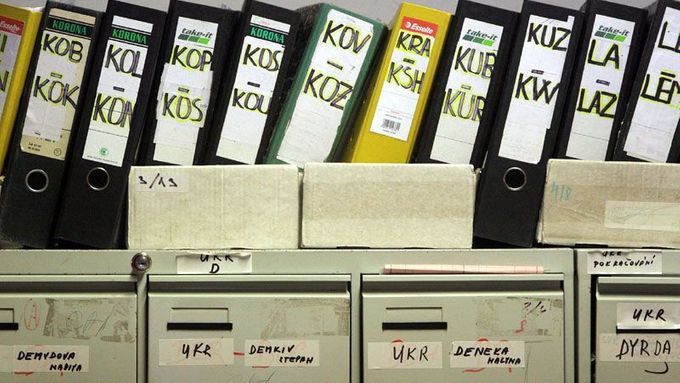Prague - Recently, states in the West are adopting stricter policies on immigration and foreigners, be it in the USA or Europe. And the Czech Republic may be jumping the bandwagon very soon.
International shame, foreign investments ebbing away and rising unemployment - this is what is looming over the Czech Republic if an amendment to the foreigners residence law is approved by the Czech Senate, critics of the amendment warn.
The novel, which has already been approved by the lower chamber of the Czech parliament, would dramatically increase paperwork and time spent visiting state offices that is needed for non-EU foreigners to obtain their permanent residence permits.
Read more: President ratifies green cards for guest workers
Read more: More foreigners now keen on buying Czech real estate
Among other things, the amendment abolishes the right to be represented by another person in communication with the state office.
Non-EU foreigners in the Czech Republic, which include for example some top managers from the USA, will thus have to come to the office three times - in person.
In addition, biometric data, including fingerprints, of non-EU foreign residents will be collected. Every time they want to change their permanent residence address or employment data, foreigners will have to visit to the office to "actualize" their fingerprints data.
The amendment is stricter than the EU directives on the issue, according to the critics - mostly international companies that are members of the Czech Confederation of Industry or American Chamber of Commerce in the Czech Republic.
The Czech Interior Ministry, which prepared the amendment, says that its purpose is to protect those who apply for work against illicit practices of some work agencies that are known to charge high fees for processing the applications. There are known cases from Vietnam or Mongolia.
So far, one personal visit to the municipal office has been sufficient for foreigners to prove they exist. The rest of the requirements could have been handled by an authorized representative, or through correspondence.
With the amendment in effect, non-EU foreign workers would have to carry out the undignified and time-consuming visit to the municipal office every time they have to change their employment or residence data.
Other aspects of the novel are criticized too, for example the introduction of higher charges to fund the new biometric system.
Representatives of car-manufacturers, IT firms and other important investors in the Czech Republic say this is a very serious problem, and unofficially admit they have realized this effect of the amendment too late, after its approval in the lower chamber. However, they hope to be able to persuade Czech lawmakers to make the novel more easy as it is discussed by the Senate.
The amendment also allows controls to be carried out in the offices of foreign companies in the Czech Republic, even outside business hours.
"Many of our member companies, for example important IT firms of research centers, will probably have to lay off staff because of this change," said Weston Stacey, executive director of the American Chamber of Commerce in the Czech Republic.
"The situation when a top foreign manager have to visit the office three times, wait in line for several hours, have his biometric data taken repeatedly, is hardly acceptable for multinational companies. This could have negative effect on the development of the Czech economy," warns Radek Špicar from the Czech Confederation of Industry of the Czech Republic.
